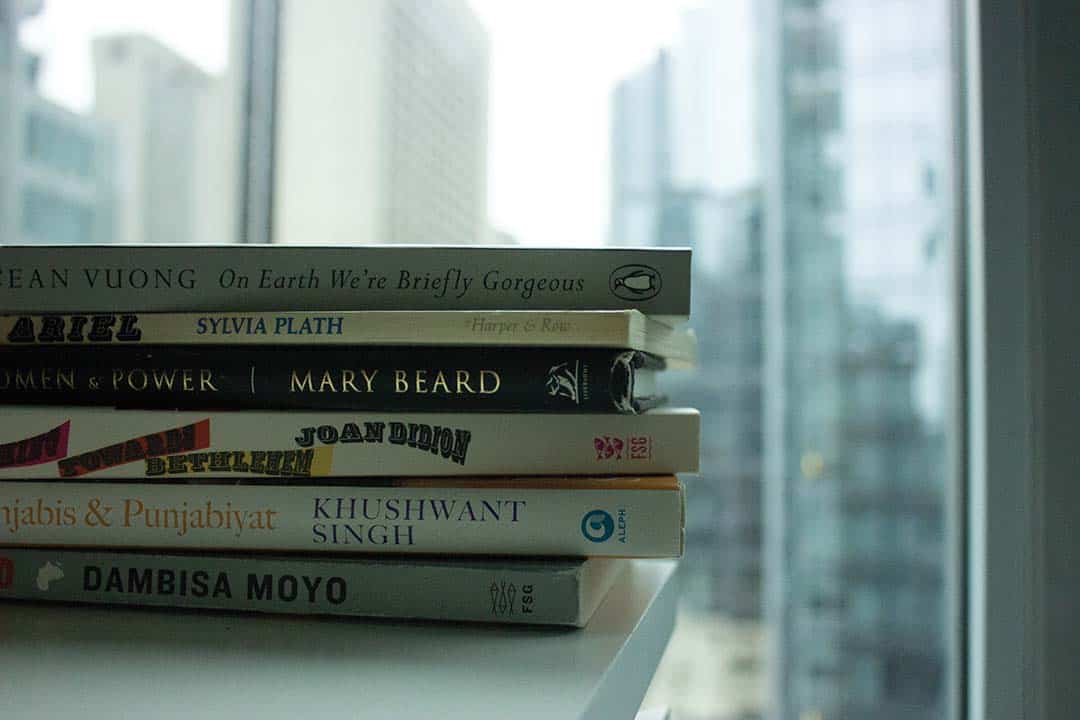Recently, when I was scrolling through Twitter, I came across a tweet by social psychologist Amy Cuddy: “Tell me about a nonfiction book that both (1) emotionally moved you as you read it, and (2) permanently changed the way you see the world?”
She received hundreds of fascinating replies, so I thought it would be interesting to hear from different people in the U of T community to explore their views on nonfiction and hear about the noteworthy books we should all read. The Varsity interviewed four different people to get four different opinions on the magic of nonfiction books.
The power of reality
Each person who was interviewed spoke about vastly different books within this literary genre. However, many interviewees discussed the unique power of nonfiction books.
In an interview with The Varsity, Alexis Hart, a 2021 U of T alumni, who studied human biology and psychology, chose to speak about Crying in H Mart by Michelle Zauner. This memoir explores Zauner’s relationship with her mother, her mother’s Korean culture, and the last few years of her mother’s life after a terminal cancer diagnosis. It highlights the intricacies of cultural connections, family, and grief.
“I think it was definitely more impactful that it was a nonfiction book,” Hart said. “And just knowing that these were real people, real experiences… it added an extra dimension to the book that you don’t often get with fiction.”
Hannah Koschanow, a fourth-year student double majoring in English and Canadian studies, spoke about How to Do Nothing: Resisting the Attention Economy by Jenny Odell, which is about the different ways social media captures our attention and how we can reclaim our attention by taking the time to truly do nothing.
Koschanow said that, although a fiction book on a similar topic might also be impactful, nonfiction is uniquely so. “You might have to do a little bit more work and you know, parsing through… the theory… [but] her argument is very clear. Whereas I feel like with a fiction [novel] that’s less explicit,” Koschanow explained.
Paul Hamel, a professor in the Department of Laboratory Medicine and Pathobiology chose to speak to The Varsity about a few different books, including Open Veins of Latin America by Eduardo Galeano and Gödel, Escher, Bach: An Eternal Golden Braid by Douglas Hofstadter.
Open Veins of Latin America is a beautifully written book about waves of exploitation of both people and resources in Latin America over the course of 500 years. Gödel, Escher, Bach: An Eternal Golden Braid ties together the music of Johann Bach, the beautiful artwork of Maurits Escher, and the mathematical theories of Kurt Gödel and seemingly superimposes them onto Alice in Wonderland.
In contrast to Hart and Koschanow, Hamel discussed how fiction and nonfiction accomplish very different things. “You don’t know where things come [from in fiction], right?” Hamel argued. “Even fiction books are very often rooted in real events… according to the way the author understands how [reality] works.”
Feelings of isolation
Perhaps people turn to nonfiction to discover that others can relate to their experiences. Hart felt that Crying in H Mart impacted her because her own relationship with her mother and Greek culture is mirrored in the book.
In another interview, Molly Metz, a voracious reader and professor in the Department of Psychology, chose to talk about The Undoing Project by Michael Lewis, which is a biography about two psychologists, Amos Tversky and Daniel Kahneman, and their platonic love story as two male friends and academics.
Metz also shared The Undoing Project with two famous psychologists she personally knows, who have a similar type of relationship as the one depicted in the book.
“When I shared this with them, they also thought it was really special because no one understands their relationship and they’re like, ‘This is the first time I’ve seen myself represented in this kind of story,’ and so I do think that there’s something about this being real that did make it special,” said Metz.
Beyond the realm of traditional education
People often turn to nonfiction to further their education, learn outside of what traditional schools teach, and develop new ways to look at the world. For example, Hamel felt that Open Veins of Latin America viscerally taught him the consequences of exploitation on people’s lives, while Gödel, Escher, Bach: An Eternal Golden Braid gave him a new lens through which to look at the world.
Clearly, nonfiction is an important literary genre for readers to be enlightened, gain new insights, and to feel connected to the world. What noteworthy nonfiction books would you add to this list?


